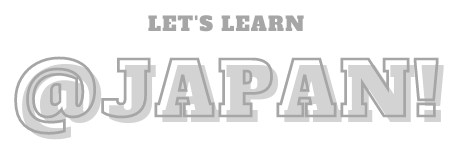We’ll introduce you to Japanese slang. Try using it in conversations and chatting with friends.
Be careful not to use it on official occasions…
Sympathy・Reaction
1. それな / わかる
[so re na / wa ka ru] ≒ I think so too / That’s it / I know
“それな” is one of the most commonly used slang among young people in Japan.
And “わかる” means “I understand how you feel” or “I understand what you said”.
A:仕事行きたくないわ… (I don’t want to go to work…)
B:それな〜 / わかる〜
2. まじ? / がち?
[ma ji / ga chi] ≒ Are you being legit?
It has a nuance of “I can’t believe it”. To be a little more polite, “ほんとに?”.
These are often wrritten in hiragana.
A:彼女にフラれちゃったよ… (I got dumped by my girlfriend…)
B:え、がち?
3. いいね / あり
[i i ne] ≒ Sounds good
Like(♡) on SNS is written as “いいね” in Japan.
And “あり” has a nuance of “70-90% agree”.
A:今週末お寿司食べに行かない?(Do you want to eat Sushi this weekend?)
B:いいね! / あり!
Adverb
1. めっちゃ / めちゃくちゃ / めちゃ
[me ccha / me cha ku cha / me cha] ≒ totally / very
“めっちゃ” is one of the most commonly used slang in Japan. Other than young person also use this word.
And “めちゃ” is often used in chat.
A:見て!昨日かわいい服買ったんだ〜 (Look! I bought cute clothes yesterday.)
B:めっちゃかわいい!
2. かなり
[ka na ri] ≒ quite / pretty
“かなり” is almost synonymous with “めっちゃ”.
If anything, “かなり” is more formal than “めっちゃ”.
A:彼が明日遅刻しないか心配だね… (I’m worried he won’t be late tomorrow…)
B:かなり不安…
3. わんちゃん
[wa n cha n] ≒ probably / maybe
“わんちゃん” comes from “One Chance”, but it means “probably” or “maybe”.
This is wrritten in both hiragana and katakana.
A:私たち終電に乗れるかな? (Can we catch the last train?)
B:わんちゃん乗れる!(Maybe we can!)
Adjective
1. えぐい
[e gu i] ≒ Nasty
“Nasty” has a negative meaning, but “えぐい” has both positive and negative meaning.
In case “えぐい” is used in good ways, it has a nuance of “amazing!” or “awesome!”.
A:大谷選手のサインもらったよ!!(I got Otani’s autograph!!)
B:それはえぐい!
2. よき
[yo ki] ≒ Good / Nice
This comes from an archaic word “よきかな” that means “good”.
However “よき” is now also a youth language.
A:先生へのプレゼントはネクタイでいいかな?(Do you think a tie is a good present for our teacher?)
B:よき。
3. やばい
[ya ba I] ≒ fucking / gosh / amazing
“やばい” has both positive and negative meaning.
This is a useful slang that can be used in any nuance.
A:ねえ!このバッグ半額だって!(Look! This bag is half tha price!)
B:やば!<positive>
A:あ!宿題忘れた… (Omg! I forgot my homework… )
B:やば! <negative>
4. エモい
[e mo i] ≒ emotional / nostalgic / sentimental
This is a coined word composed of “emo” from “emotional” and “い” for adjectiveization.
■What makes ous feel “エモい” when we see it ?
Ex 1:An elementary school that we graduated from a few decades ago
Ex 2:Sunset over the sea
Verb
1. ググる
[gu gu ru] = Google it
This is a coined word composed of “ググ” from “Google(グーグル)” and “る” for verbization.
A:これ、なんていう花?(What kind of flower is this?)
B:ググるわ。
2. ディスる
[di su ru] = Diss
This is a coined word composed of “ディス” from “disrespect(ディスリスペクト)” and “る” for verbization.
A:君の手料理は意外と美味しいね(笑) (Your home cooking is unexpectedly good lol)
B:ディスってる?(Are you dissing me?)
3. ジワる
[ji wa ru] ≒ getting funnier and funnier / gradually makes me laugh
This is a coined word composed of “ジワ” from “ジワジワ(≒gradually)” and “る” for verbization.
A:亀の散歩してるあの人、うちの上司じゃない?(Isn’t that person walking the turtle our boss?)
B:え、ジワる
Noun
1. パリピ
[pa ri pi] ≒ Party people
“パリピ” is short for “Party people(パーリーピーポー)”.
People who are simply flashy may also be called “パリピ”.
A:俺、今日も明日もクラブ行くわ (I’m gonna go to club today and tomorrow.)
B:パリピじゃん
2. インスタ映え / 映え
[i n su ta ba e / ba e] ≒ Instgrammable / Photogenic
This is a coined word composed of “インスタ” that is short for “Instagram(インスタグラム)” and “映え” that means “Photogenic”.
A:このカフェすごくおしゃれだね!(This cafe is so cool!)
B:“映え”だね



コメント